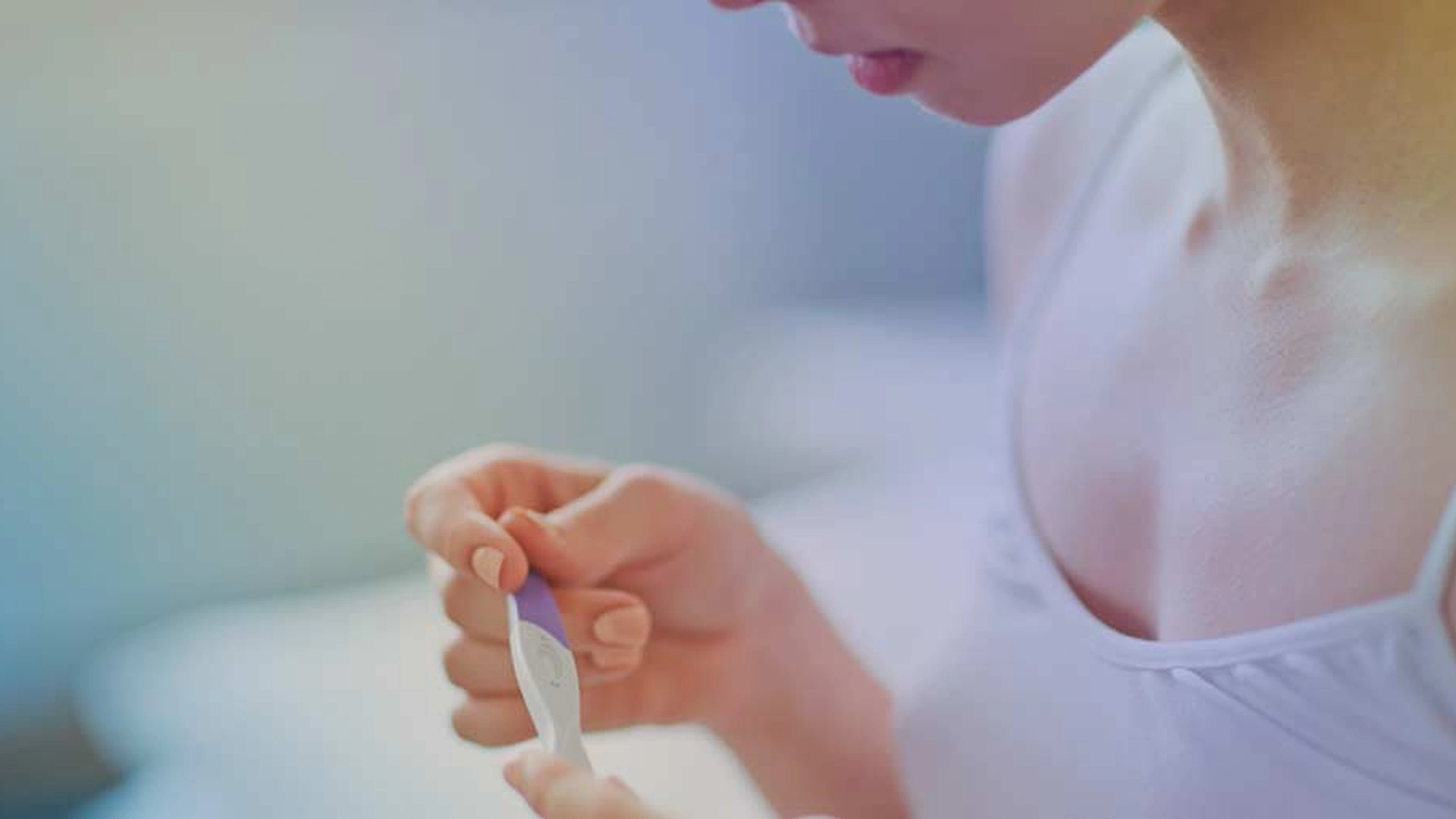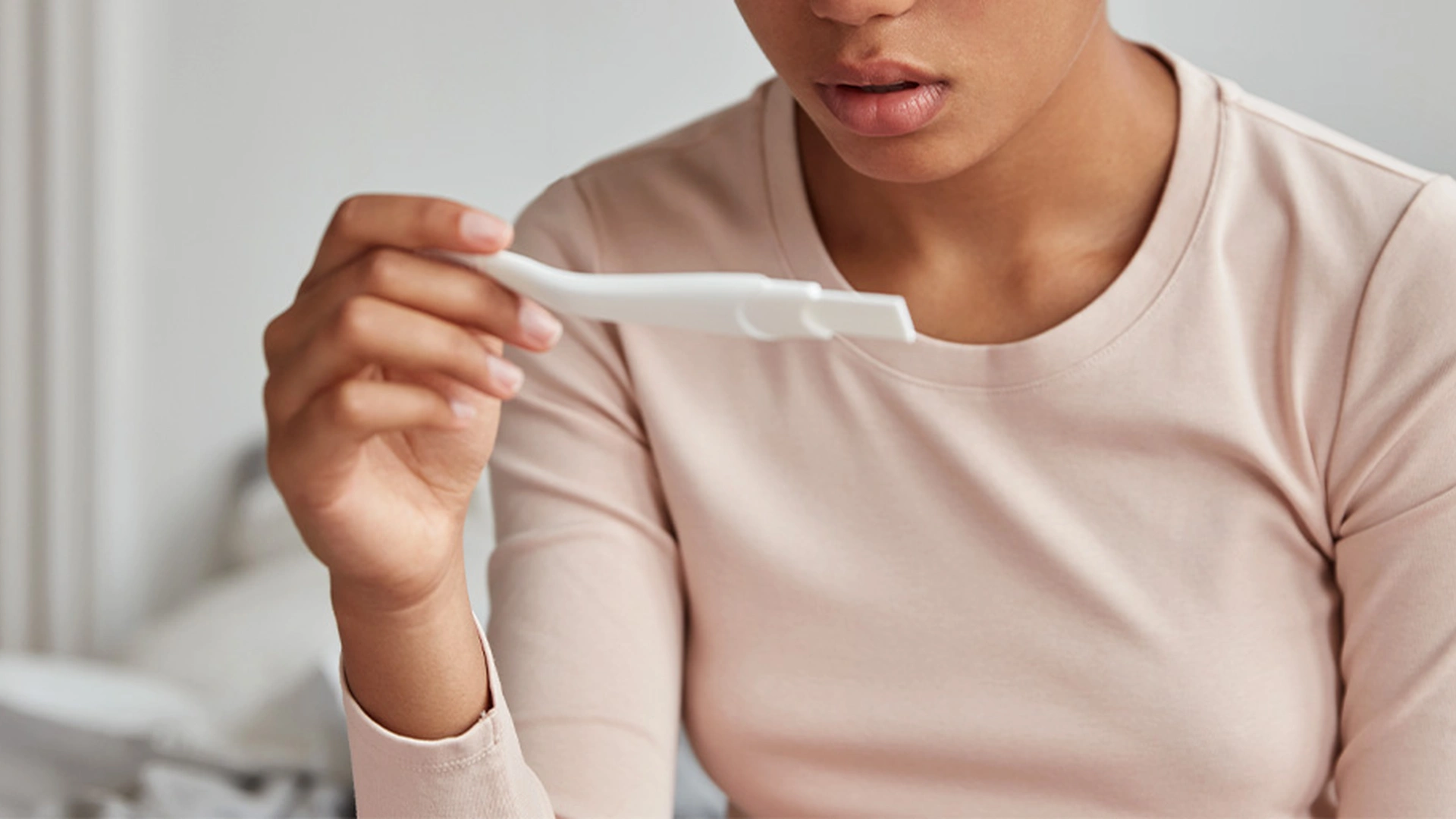

An ovulation test is a test that indicates when a woman is in her fertile period. In more technical terms, this test detects the peak of luteinising hormone (LH, one of the pregnancy hormones) released in the pituitary gland, which causes the release of the egg some 24-48 hours later.
It is typically used to help determine the fertile days of the menstrual cycle. However, an ovulation test can give a negative result for several reasons, and it is important to understand the possible causes. Here are some common reasons why you might get a negative result on an ovulation test.
Main causes of a negative ovulation test
1. You are taking the test at the wrong time
- It is possible that the LH surge has not yet begun, or that it has already passed.
- Ideally, you should start testing a few days before your estimated ovulation date (for example, from day 10 of your cycle in regular 28-day cycles).
2. You are taking the test at an inappropriate time
- Ideally, testing should be done between 10:00 and 20:00, as LH is usually released later in the day.
- Avoid testing with the first urine of the morning.
3. You have an irregular cycle or are not ovulating
- If your cycles are irregular or you are under a lot of stress, you may not be ovulating that month.
- It could also indicate a hormonal problem such as polycystic ovary syndrome (PCOS).
4. Your LH level is not high enough to be detected
-
Some women have very brief or low LH surges that cannot be detected with a standard urine test.
5. Misinterpretation of the result
-
In an ovulation test, it is not enough for a faint line to appear: the line must be equal to or darker than the control line to be considered positive.
On the other hand, it is also important to recognise the possible results of false positives, i.e. when the test is positive but there is no ovulatory phase (ovulation):
Can You Ovulate Without Detecting an LH Surge?
Yes. In some cases, the body releases an egg without the LH surge being high enough for the test to detect it. This is more common in women with short or low surges.
It may also happen if you are using a test with a sensitivity that does not suit your hormonal profile.
«Ovulation tests are not exact diagnostic tools and must be used carefully, keeping in mind that they may produce both false negatives and false positives..»
Is It Possible to Be Pregnant If the Ovulation Test Is Negative?
Yes. If you have already ovulated and fertilisation has occurred, the ovulation test may be negative, while a pregnancy test could be positive.
This occurs because ovulation tests do not detect the pregnancy hormone (hCG).
What to do if the ovulation test always comes back negative
If you have had consistently negative tests for several cycles, you can:
-
Change the brand or sensitivity of the test.
-
Conduct the tests at different times of the day.
- Use a dual monitoring method: basal body temperature, cervical mucus, and ovulation tests.
- Consult a fertility specialist if you still have questions.

How to Use an Ovulation Test Correctly
To carry out an ovulation test properly and avoid a false negative, the following guidelines should be followed:
- Begin testing several days before the expected date of ovulation (three days in advance is usually enough). For example, if a woman has a 28-day cycle and normally ovulates on day 14, it would be best to start testing on day 11 or 12 of the cycle.
- Do not use the first urine of the morning, as LH hormone levels can be higher at that time and may produce false positive results.
- Repeat the ovulation test twice a day, about every 12 hours.
- Keep a consistent routine: try to test at the same time every day to get more accurate results. LH levels can fluctuate throughout the day, so consistency helps reliability.
- Continue testing daily until you get a positive result.
- Read the instructions: before starting, make sure you carefully read and understand the manufacturer’s guidelines, as different brands may have slightly different directions.
- Check the results within the time stated: do not wait too long before reading the test. Always check within the time frame indicated in the instructions, as leaving it too long may lead to incorrect interpretation.
Ovulation tests measure the minimum amount of luteinising hormone (LH) detectable in urine (expressed in international units per litre, IU/L). Whether using test strips or digital devices, it is generally better to choose those with higher sensitivity (10 IU/L), as they are more likely to detect the LH surge than lower-sensitivity tests (40 IU/L).

FAQs about negative ovulation tests
Can I get pregnant if my ovulation test is negative?
If the test is being performed correctly and the LH surge has not yet occurred, you cannot become pregnant. However, in the event of a false negative or low test sensitivity, it is possible to become pregnant if you have sexual intercourse on the days of expected ovulation. If, for several months, the tests indicate that ovulation is not occurring and pregnancy is not achieved after a year of regular sexual intercourse, it is recommended that you consult a fertility specialist to determine the cause of anovulation and correct the problem in order to achieve the desired pregnancy.
I don't have an LH surge. Why is that?
The absence of an increase in LH (luteinising hormone) levels during the menstrual cycle may indicate certain problems. LH is essential for ovulation and a normal menstrual cycle. Possible causes of the lack of this increase in LH include anovulation due to hormonal imbalances such as polycystic ovary syndrome, problems with the pituitary gland, or low oestrogen levels; amenorrhoea, which is the absence of menstruation due to factors such as stress, excessive weight loss, or eating disorders; menopause, where LH levels tend to be consistently high; and the use of hormonal contraceptives that suppress the LH surge by preventing ovulation.
If you do not experience an LH surge and this concerns you, it is essential to consult a doctor or gynaecologist. It is ideal to perform additional tests and evaluations to identify the underlying cause and recommend appropriate treatment if necessary. The lack of an LH surge can affect fertility and reproductive health, so addressing this concern is essential.
Why does the ovulation test always come back negative?
If ovulation tests always come back negative, this may be due to errors in use, test quality issues, irregular menstrual cycles, hormonal disorders, use of hormonal contraceptives, pregnancy, or menopause. You can consult a doctor or gynaecologist to determine the underlying cause and receive appropriate guidance for your particular case.
Book a free consultationDo You Have Any Questions or Need More Information?
At Fertility Madrid, our specialists are here to guide you and answer any doubts about irregular cycles, ovulation, and fertility treatments. Do not hesitate to contact us – our consultations are warm, supportive, and without obligation.




